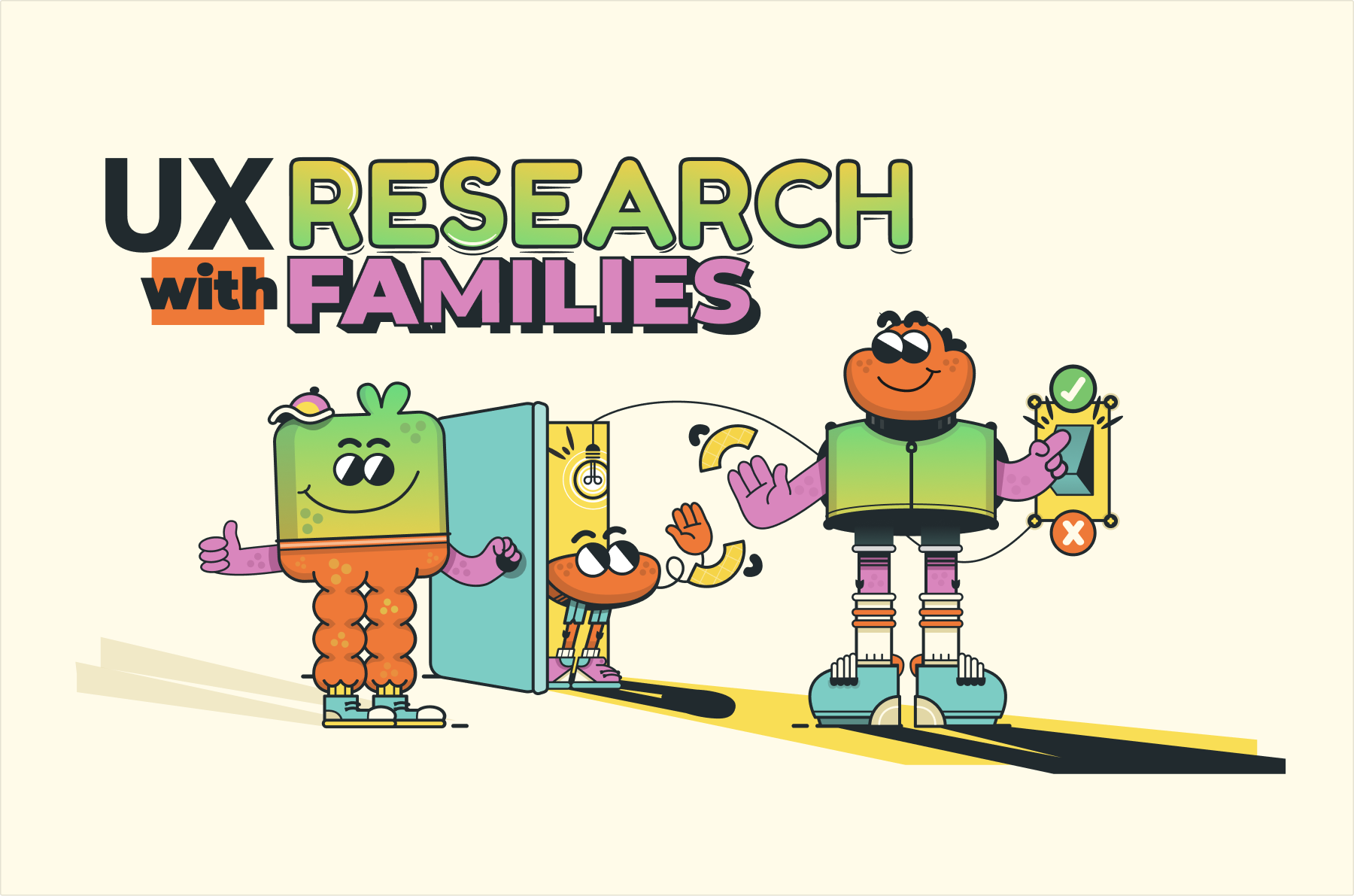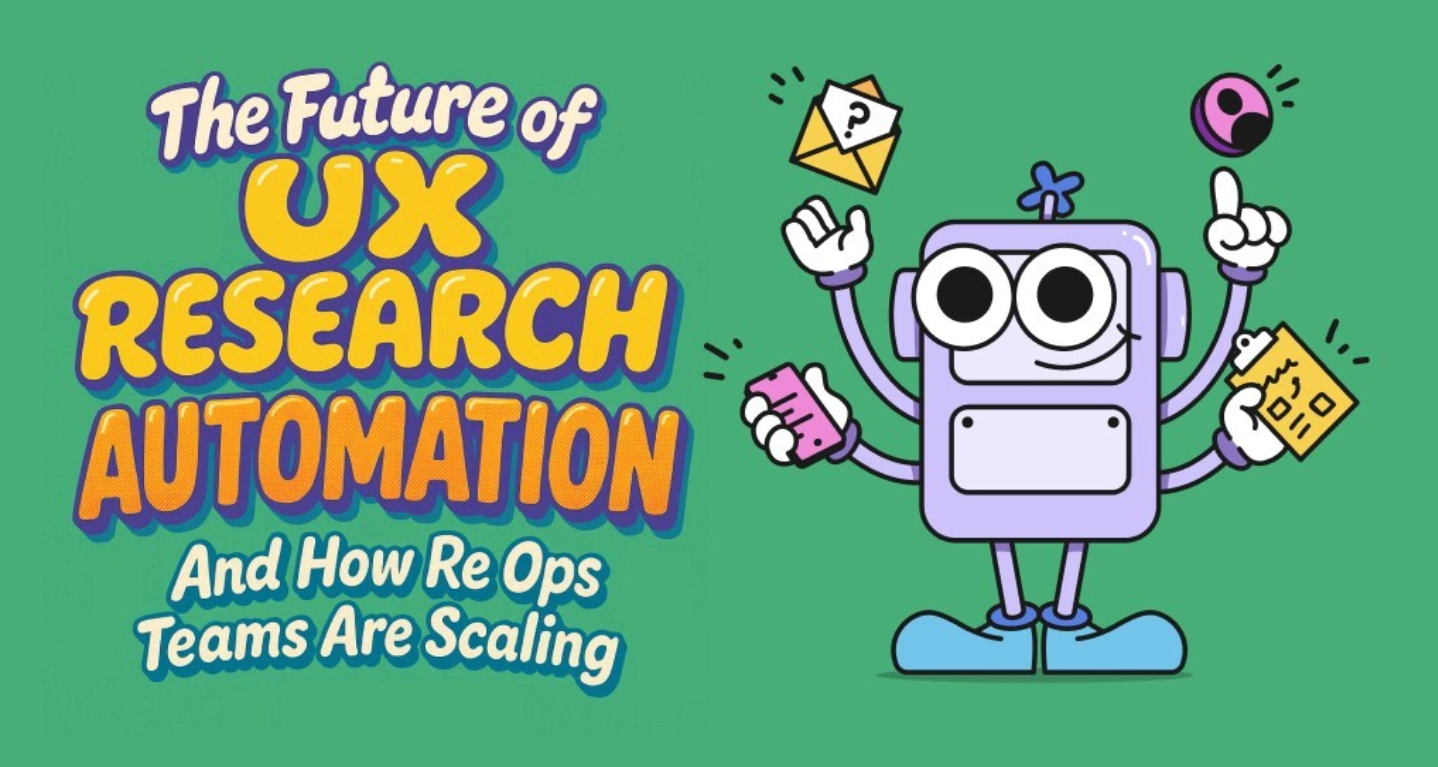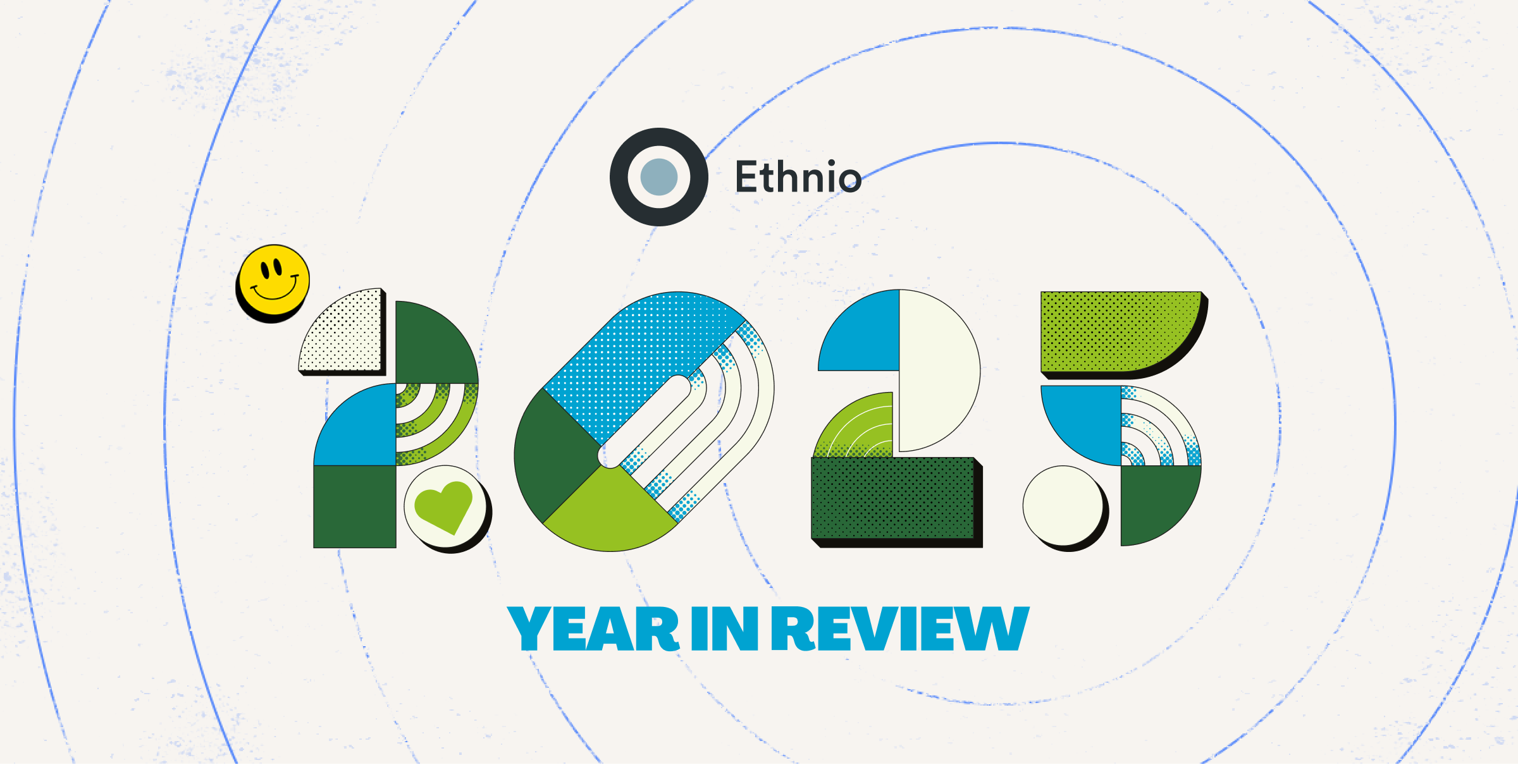Struggling to manage all the moving parts of user research as your projects grow?
Initially, research often functions as a service model... if the researcher is successful, there will soon be far more research requests than they alone can address. Juggling participant availability, scheduling conflicts, communication, and data across studies can quickly lead to low response rates and frustrated participants. It can feel like coaching a championship game – the pressure is on you to deliver!
But without the right strategy and tools, as research requests grow, you risk fumbling critical plays and dropping the ball on positive participant experiences.
Just like a winning sports team needs a strategic game plan, impactful user research (UXR) demands the same. Scaling quality research requires efficiently managing tasks like user recruitment, participant management, study creation, and incentives. A solution for optimizing and streamlining research operations is a CRM designed specifically for User Research.
By the end of this blog, you'll be driving positive business impact with research that hits a home run. We'll explore the limitations of traditional tools, conducting quality research at scale and how User Research CRMs can empower you to:
Draft the perfect team (streamlined recruitment)
Manage your lineup (participant management)
Call the right plays (efficient research methods)
The challenges of juggling multiple tools
Just like assembling a championship team relies on meticulous drafting and skilled lineup management (anyone who has last draft picks for their 2024 fantasy league - you have our empathy), successful UXR hinges on efficient recruitment and effective participant management. Strong recruitment finds the right participants, and a positive participant experience fosters trust, encourages repeat participation, and builds strong relationships. The quality of your research depends on this.
Juggling multiple, disconnected tools for recruitment and management creates bottlenecks, frustration, and jeopardizes your panel health – the pool of reliable participants you depend on. This can snowball into difficulties scaling your research as your workload increases.
The disjointed toolbox
Participant recruitment and management need open and connected platforms for a positive experience that leaves participants engaged throughout the process.
Unfortunately, relying on a traditional toolbox of multiple tools often drops the ball when there’s an influx of research requests. The traditional UXR toolbox includes:
🔸Spreadsheets (like Google Sheets or Airtable) for data organization.
🔸Traditional CRMs (like HubSpot or Salesforce) might be repurposed for participant management, but their features often don't fully meet UXR-specific needs.
🔸Survey tools (like Qualtrics and Typeform) for gathering feedback, but integrating them with other tools could be a challenge.
🔸Mail-merge tools (like MailChimp and Salesloft) helped send emails, but managing communication across studies was cumbersome.
🔸Docusign or similar tools helped obtain digital signatures, but integrating them with the overall workflow added complexity.
🔸Google Forms might have been used to collect participant consent, but it wasn't ideal for managing ongoing consent throughout a study.
It's more likely folks will be double-emailed on the same request which might make them want to unsubscribe even more.
Fragmented workflows
Relying on disjointed tools for research operations (ResOps) disrupts workflows. Traditional tools weren't designed for the complexities of large-scale research projects, creating several challenges:
🔸Managing hundreds of participants across multiple studies becomes a logistical nightmare.
🔸Repetitive tasks like scheduling interviews and sending emails are manually handled in separate tools, hindering productivity.
🔸Finding the right participants and scheduling their time becomes a complex process involving spreadsheets and email threads, leading to delays, frustration, and potential participant drop-off.
🔸Juggling sensitive participant data across multiple platforms increases the risk of breaches and security vulnerabilities. Every additional tool introduces a new potential weak point.
🔸Researchers spend a significant amount of time on administrative tasks like data entry, consent management, and reporting, taking away from strategic analysis and insights generation.
🔸Scattered data across different tools makes it difficult to track participant trends, analyze results, and generate comprehensive reports.
🔸Information silos prevent teams from collaborating effectively and sharing insights across projects, hindering knowledge transfer.
🔸Data about participants is scattered across different tools, making it challenging to build a holistic view of their needs and past experiences within your research efforts.
There were ~50 different tasks that we do manually...screeners, recruiting, NDAs, follow-ups, rescheduling participants, and closeouts, all while running a handful of projects at a time. Thus more automation leads to less burnout.
What is a User Research CRM?
User Research CRMs are specialized tools designed to streamline the entire UXR lifecycle. It functions as a central hub, managing participant recruitment, screening, scheduling, communication, and data storage – all within a secure and unified platform.
A unified system helps us personalize outreach, ensuring participants receive relevant information. It also keeps communication organized, avoiding duplicate messages and frustration. Finally, it streamlines incentive management, showing participants we value their time.
Traditional CRMs
While traditional CRMs might be repurposed for participant management, they often fall short of UXR-specific needs. Senior Designer at DuckDuckGo, Abe Young, found traditional CRMs often fall short of UXR-specific needs:
🔸Inefficient participant filtering and recruitment.
🔸Time-consuming manual data entry and manipulation.
🔸Limited ability to manage participant information in bulk.
Many businesses struggle with managing large amounts of data daily. Leading to frustration and wasted time spent manually adding information.
The impact of User Research CRMs
With a User Research CRM taking care of the mundane, you can dedicate your expertise to the strategic activities that drive impactful research.
McKinsey Global Institute reports that over 60% of occupations can benefit from automating repetitive tasks by 2030. A survey by Automation in the Workplace further emphasizes the desire of information workers to spend less time on repetitive tasks like data entry and focus on more strategic and rewarding aspects of their jobs.
The answer lies in the time-consuming, repetitive tasks that plague UXR workflows. Studies show that automation can lead to:
🔸Reduced wasted time by up to 69% (think less time wrestling with spreadsheets and chasing down participants!).
🔸Elimination of human error by up to 66% (no more worries about typos in participant information).
🔸Recovery of up to 59% of work hours currently lost to manual tasks.
Imagine the impact this could have on your research efforts! Automating repetitive tasks is a win-win - happier, more engaged employees and a more innovative and competitive organization.
Our need for user insights was growing as fast as our team's headcount, and we needed infrastructure to support both.
Invest in a solution, not just a tool
An effective research crm, like Ethnio, should allow you to efficiently manage studies and participants, ensure safe and compliant research, and integrate with other research tools.
Focus on addressing your team's specific pain points and evaluating the tool based on:
Managing large-scale research
Don't let complex projects with hundreds of participants slow you down. CRMs empower researchers to handle large-scale research efforts efficiently, ensuring data integrity and maximizing research impact.
Efficient research operations
Automate repetitive tasks like scheduling and communication, freeing researchers to focus on strategic analysis and participant engagement.
Improved participant quality
Find the ideal participants for your studies. CRMs empower researchers to leverage targeted recruitment features, leading to higher quality research data and more valuable insights.
Positive participant experience
Simplify communication and participation throughout the research journey. This fosters higher engagement rates and a more positive experience for participants, ultimately strengthening your research foundation.
Seamless team collaboration
Ensure everyone's on the same page, from recruitment to analysis. A centralized platform fosters efficient collaboration across your research team, promoting knowledge sharing and faster project completion.
Identify your UXR bottleneck
Is it the constant struggle to find the perfect participants? Are you bogged down by budget constraints, limited time, or an ever-growing to-do list? Or are you more stressed about keeping track of incentive payouts for participants?

Wherever the bulk of your user research stress is coming from, user research CRM tools can help you mitigate these concerns.
Ready to explore your CRM options? Here are some key factors to consider:
Usability
How intuitive is the platform? Can everyone on my team, including those new to research (PwDRs), quickly become comfortable using it? Onboarding should be smooth and efficient.
Automation
What parts of the recruiting process can I automate and streamline using this tool? How much time can I save by using this tool to take care of the manual, administrative work?
Flexibility
Can this tool support different use cases, screener survey types, different forms of incentives, and consent forms?
Integration
Does this research CRM integrate with other software in my UX research tool stack?
Structure
Does this tool allow me to set different control permissions across team members, standardize participant outreach, and set incentive limits?
Security
If I store sensitive contact information for my participants, does this research CRM tool ensure safe data storage?
Collaboration
Does this UX research CRM tool streamline collaboration across cross-functional teams?
There will be a need for tools, templates, and guides.
Our words of wisdom💬
Focus on investing in a research CRM tool that helps scale your research projects while taking care of all your participant recruiting and management needs.
Key considerations when choosing your MVP
Here's a breakdown of key functionalities to look for:
Comprehensive study management
Easily set up, run, and track a variety of research studies. Benefit from flexibility and integrations with popular tools.
Empower your team & participants
Participant management is the heart of user-centric research. Building trust with participants requires ensuring the security and privacy of their data. A good research CRM provides a scalable database to manage all your participants in one place, with features that seamlessly connect to your study management and recruitment processes, allowing you to track interactions and engagement.
Secure and scalable participant data management
Consolidate participant data, including past interactions, screener submissions, product usage data, and researcher notes, in a secure and scalable database that accommodates various data types (text, numbers, dates, selections, etc.).
Dynamic participant segmentation
Utilize pre-defined filters to create targeted participant groups for specific studies.
Customizable panels
Build and manage multiple participant panels with unique attributes for focused research efforts.
Rich participant profiles
Consolidate past interactions, screener submissions, product usage data, and researcher notes in one central location.
Security, privacy, & compliance
In today's data-driven world, maintaining user trust and regulatory compliance are paramount. Your centralized hub should act as a cornerstone of your data governance strategy, ensuring a safe and secure environment for sensitive participant data. Look for features like:
Data governance rules
Set clear guidelines around contact frequency, participation levels, incentive payouts, and more.
Access controls & permissions
Grant each user the appropriate level of access to participant data.
Consent management
Capture consent automatically and maintain a central location for managing consent forms, opt-outs, and research agreements.
Best-in-Class Security
Ensure data protection through industry-standard security certifications (SOC 2, GDPR, etc.).
Integrations
A User Research CRM that integrates seamlessly with your existing research stack fosters streamlined workflows by enabling:
Data synchronization
Keep opt-outs and other data points consistent across your CRM and other customer data sources using APIs.
Email management
Integrate with your email system to send personalized messages from your own address.
Scheduling tools
Streamline interview scheduling through integrations with tools like Google Calendar, Office 365, and Calendly.
Incentive management
Send global incentives conveniently.
These core features will empower your team to call the right plays (efficient research methods), and unlock the power of real participant data for impactful research outcomes.
Level up your game
With a User Research CRM ofcourse!
Now you’re equipped to driving positive business impact by automating and bidding farewell to disjointed tools and manual tasks. and if reaching the end zone wasn’t enough, we’ll leave you with another golden nugget: A study by NN/g found that it takes an average of 1.15 work hours to recruit just one participant for research—and that time goes up more if there are specialized requirements.
By adopting a User Research CRM, you empower your team to become a championship-caliber research unit. You'll generate impactful insights that drive better product decisions, all while fostering a positive experience for your research participants.
Your end-to-end user research solution
Choosing the right User Research CRM, like Ethnio, can make all the difference. Ethnio allows you to:
🔸Track and manage all studies from a central hub.
🔸Manage recruitment from initial outreach to scheduling and incentives.
🔸Utilize powerful filters and segmentation to target the right participants.
🔸Build custom email workflows for invitations, reminders, and thank yous.
🔸Implement advanced screening with skip logic and auto-qualification.
🔸Facilitate team scheduling for various research formats (interviews, groups, round robins).
🔸Manage custom consent forms and NDA signatures.
🔸Integrate seamlessly with popular research tools for centralized data management.
🔸Offer global incentives to attract participants.
🔸Craft branded sign-up pages for each study.
We love that Ethnio lets us maintain our brand identity by customizing every visual and copy element of the emails and redemption pages. As a design-focused company, this is critical to us.



